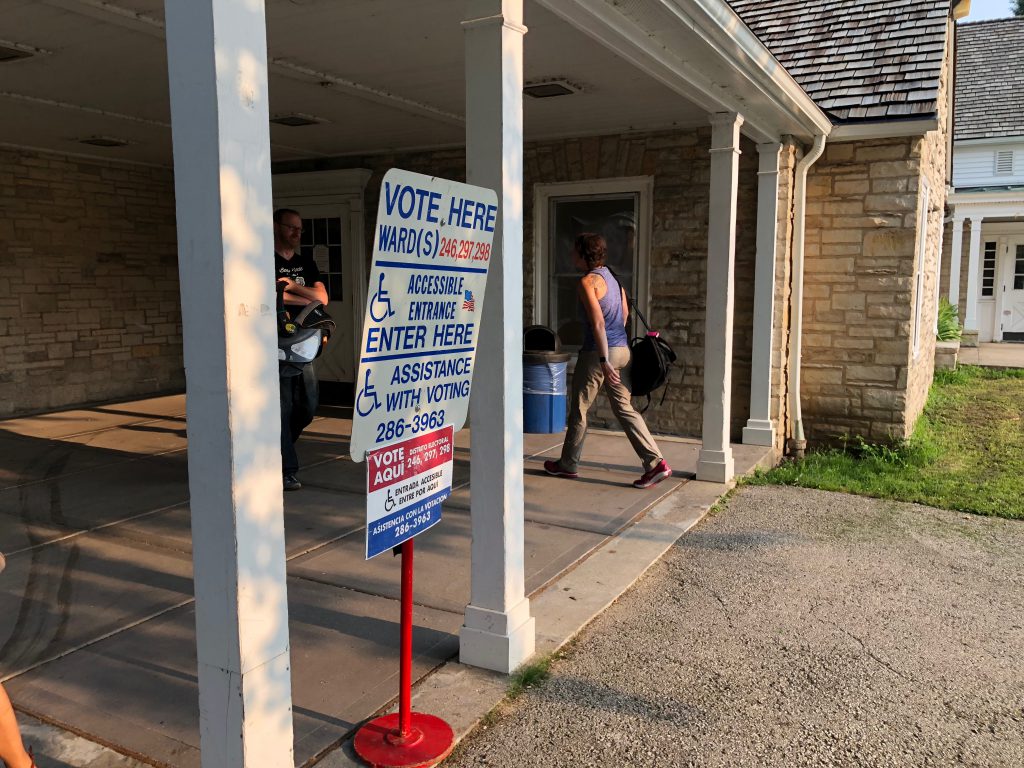What’s Going on With Voting List Purge?
A scramble in the courts and an uncertain future.
A conservative group’s lawsuit demanding that more than 200,000 voters who may have changed address be purged from the voting rolls in Wisconsin has set off a race to state and federal courts by parties on both sides of the issue.
The Wisconsin Institute for Law & Liberty (WILL), which brought the original lawsuit, the League of Women Voters, Attorney General Josh Kaul, the SEIU, the Legislature and the state elections commission were all waiting on court decisions this week.
Which of the various courts involved will act first and what the final outcome will be is still very much up in the air.
Who will act first?
“Who will act first? The circuit court? The appellate court? The federal court? We’re all just waiting to see,” one lawyer involved in the elections commission’s case told the Examiner.
On Tuesday, the Court of Appeals issued an order declining to act until the state Supreme Court makes up its mind whether to grant a bypass petition brought by WILL and take up the case.
That was a disappointing outcome for the elections commission, which was seeking to stay an Ozaukee County judge’s order that it purge the rolls immediately, and for the SEIU, which was seeking to join the case.
Meanwhile, Ozaukee County Circuit Judge Paul Malloy has scheduled a hearing for Monday on WILL’s motion to hold the commission and individual commissioners in contempt of court, because they have not yet purged the voters in question from the rolls.
The state Supreme Court has reliably sided with conservatives and will likely be a friendly forum for WILL. For the parties who don’t want the voters to be purged from the rolls, federal court seems a more auspicious place.
But there are many complications.
In ordering the elections commission to purge the rolls, Judge Malloy issued a writ of mandamus — a rare and extraordinarily forceful order. But it did not include a deadline.
Do commissioners care if they’re held in contempt?
If the judge holds the elections commission in contempt on Monday, he could impose fines of $2,000 per day per defendant, which might propel the commissioners to act. Or it might not. The fines would ultimately amount to moving money from the commission’s coffers to those of the circuit court. It’s not clear that will create any great sense of urgency.
On the other hand, commissioners, who deadlocked 3-to-3 on a vote on the purge last week, might be reluctant to move expeditiously while facing the possibility that they could be guilty of violating the U.S. Constitution, as the League of Women Voters is arguing in federal court.
The urgency, for those who don’t want to see the purge is its likely effect on the 2020 elections; 200,000 votes is many more than the margin by which Donald Trump won Wisconsin in 2016.
And while WILL argues that, under Wisconsin’s same-day registration system, it is easy enough to re-register at the polls, voters who don’t realize they have been purged will not likely show up with the utility bills or other proof of address needed for voter registration. Extra hurdles, including having to return at a later time and wait in a separate line, discourage voters.
Racing against the clock
The League of Women Voters filed a complaint in federal court on Dec. 17 claiming that the voter purge violates the U.S. Constitution since the notice voters received did not warn them that they faced being removed from the rolls if they did not respond, nor were they told the timeline in which they must take action to remain registered to vote.
The Supremacy Clause of the U.S. Constitution requires the elections commission to comply with the federal court’s ruling and not a ruling in the state courts if those rulings are in conflict.
The League of Women Voters is urging the federal judge in the case, James Peterson, to act speedily. But meanwhile both the Legislature and WILL have filed motions to intervene, which could slow things down in federal court. Meanwhile the State Supreme Court’s next scheduled meeting is next Tuesday, and it has not made up its mind whether to act.
Lawyers on both sides are racing against the clock. If the federal court acts first, the practical effect would probably be to delay the purge until after Wisconsin’s April Supreme Court elections.
Meanwhile, groups representing members of racial and ethnic minorities who have been disproportionately impacted by voter suppression might file separate federal claims.
One thing is certain — there will be a lot more litigation before the general election in November.
Reprinted with permission of Wisconsin Examiner.
More about the 2020 Voter Purge
- Murphy’s Law: WILL’s Harvard Lawyers Fail at Voter Purge - Bruce Murphy - Apr 12th, 2021
- State Supreme Court Tosses Voter Purge Suit - Shawn Johnson - Apr 9th, 2021
- WILL President Rick Esenberg on Supreme Court Decision in Zignego v. WEC - Wisconsin Institute for Law & Liberty - Apr 9th, 2021
- WEC Statement Regarding Wisconsin Supreme Court Decision - Wisconsin Elections Commission - Apr 9th, 2021
- High Court Urged to Okay 5% Error Rate in Voter Purge - Henry Redman - Sep 30th, 2020
- Court to Rule on Purging 130,000 from Voter Rolls - Laurel White - Sep 29th, 2020
- League of Women Voters of Wisconsin Files Brief to Protect Registered Voters from Polling List Purge - League of Women Voters of Wisconsin - Jul 14th, 2020
- State High Court Narrows Chance of Voter Purge - Laurel White - Jul 1st, 2020
- Voter Purge Push Threatens 129,000 Names - Michael Parsky, Kynala Phillips and Dana Munro - Jun 14th, 2020
- Op Ed: Dan Kelly Wants Revenge - Matt Rothschild - Jun 2nd, 2020
Read more about 2020 Voter Purge here





















